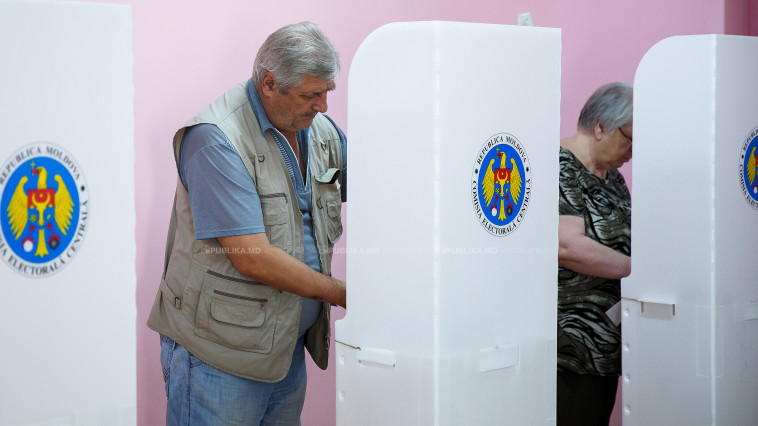Iulian CHIFU // How could the single candidate of the pro-European right opposition not get into the second round

We are in a period (2016 - the year of grace, namely in October, a week before the elections of the President), and in a country of paradoxes (Moldova), where one plus one can - on the contrary to what mathematicians think and most frequently - two, or sometimes even three or five, as an effect of training the electoral movements and emotions, on the background of hope recovery. However they can make also 1.3 or less than 1, if the progress is chaotic, confused, disappointing for the voter. As the first round of direct presidential elections is approaching, let's see how could Maia Sandu - the single candidate of the pro-European right wing opposition - not get into the second round of voting.
Several kinds of factors such as: external, belonging to the opposition candidates, "friends", counter-candidates with the same voters, and internal, own strategies of campaign or candidate's ones. As many sources of errors, gaffes, inappropriate actions, inadequate choices, unfortunate public interventions. Let's take them one by one.
At the chapter of external factors belonging to the counter-candidates, we could list the hits below the belt, public statements or spreading misinformation on the candidate; or a spectacular hit for the image, done through Russia (most probably, for supporting Igor Dodon), or through the government.
The second external factor is the use of administrative and governmental resources, frauds, to bring Marian Lupu to the second round. Such an option would be suicidal for the pro-European government itself, but also because it questions the fairness of the elections - as well the action of the pro-European government - generating massive street demonstrations.
At the chapter of external factors that came from friends and competitors on the same electorate, I would cite two major sources: the candidacy of Iurie Leanca, who sits on the same electorate as LDPM and although he was requested by the President of the European People's Party, Joseph Daul, to withdraw, although he received explicit signals from German partners, which he relied on, through the appearance and statements of Merkel supporting the single candidate of the pro-European opposition, refuses to withdraw from the campaign and steals other 2-3, maybe 5% of the votes of Maia Sandu, enough to enter the second round.
There is also a possibility that Andrei Nastase's actions during this period and his insistence in combat the "bad oligarch" may lead to directing his electorate towards Igor Dodon, not to Maia Sandu. Moreover: this behavior may weaken the chances of the second round.
In the same train of thoughts we could further record the internal mistakes of the campaign of Maia Sandu. Here I would include two: the preeminence of external support, Maia Sandu preferring to go to the meeting of the EPP, instead of all the leaders who chose her as a common candidate to hurry up and support her in local rallies in the country and in actions concerted by all the teams in the territory. The votes are won in Moldova, not in Brussels. The second is at the boundary between the internal factor, the staff, and external factor that comes from friends. Simpler, it's about borrowing from PPDA two themes, both costly and counter-productive.
First one: early elections (impossible - I repeat what I have said in previous editorials - the condition in which there is a stable government and majority, in addition to what the Constitution provides in this respect).
The second one: the arrest of the oligarch or at least the appointment of a prosecutor general to arrest him. An approach that can be qualified as deeply non-European and undemocratic to the relationship between state powers. Or, even worse, as a temptation of the future President to use the political and judicial power in order to resolve with administrative means a problem that is, in fact, the responsibility of justice. A justice where even the president, does not interfere, even the prosecutor (who does not arrest, only detains) and the courts can arrest only after a final and irrevocable decision.
Finally, there are probable mistakes of Maia Sandu as a candidate, too. The refusal to take the common support of the three political forces that decided the single candidate, non-involving in serious battles for elections by avoiding direct confrontations with relevant candidates, lack of training in foreign policy, defense and security, gaps in training on major subjects and issues of Moldova. If seized and presented as such, all this could be considerable vulnerabilities even in the first round,.
Finally, there are also mistakes of Maia Sandu as a candidate. The refusal to take the common support of the three political forces that chosen the single candidate, non-involvement in serious battles for elections by avoiding direct confrontations with relevant candidates, lack of training in foreign policy, defense and security, gaps in knowledge on major subjects and issues concerning Moldova. If seized and exhibited as such, all this could be considerable vulnerabilities even in the first round.
After October 30, the stakes are changing and the speech should adapt to the new reality and second round. Now, however, the action needs to be reassessed: from the promotion of Maia Sandu to the fight with Dodon. Stop Dodon! Stop Moldova's sinking in deep Siberia! Stop the federalization of the state! - This is how should sound a campaign slogan in the second round.














